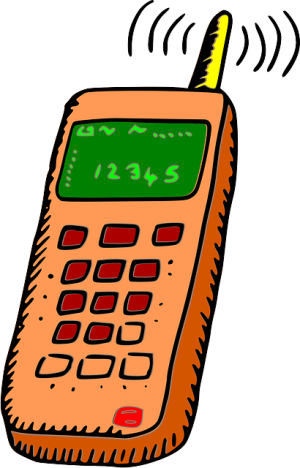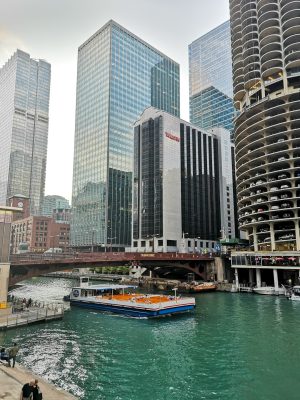Residents of Illinois facing the irritation and potential fraud of unwanted robocalls have robust legal protections thanks to a combination of state and federal laws. The Federal Communication Commission (FCC) regulates robocalls under the federal Telephone Consumer Protection Act (TCPA), while the Illinois Do Not Call Act provides additional consumer protections. Robocall law firms in Illinois specialize in navigating both sets of regulations, offering professional legal services including filing complaints and litigation against offenders. These firms are staffed by experienced robocall lawyers and robocall attorneys who are experts in this field and can provide comprehensive legal support to those affected by illegal robocalls. For residents seeking expert legal assistance, it's advisable to engage a reputable robocall lawyer or robocall attorney in Illinois who is well-versed in telecommunications law and can offer personalized guidance and robust representation against the nuisance of robocalls. When selecting a robocall law firm in Illinois, consider their track record, expertise, and client satisfaction to ensure effective advocacy for your rights and financial compensation if applicable.
Illinois residents are increasingly experiencing the nuisance of unwanted robocalls. As technology advances, so do the tactics used by telemarketers and scammers to invade our privacy. This article delves into robust strategies for combating these automated nuisances, shedding light on the latest in robocall legislation at both state and federal levels. It provides valuable tips for consumers to protect themselves and outlines the critical role Illinois-based robocall lawyers and attorneys play in legal recourse against such illegal intrusions. Understanding the laws and utilizing professional expertise from experienced robocall law firms within Illinois can significantly fortify your defenses against these intrusive calls.
Understanding Robocall Legislation in Illinois: An Overview of State and Federal Laws

In Illinois, residents are well-protected against the deluge of unwanted robocalls thanks to a combination of state and federal laws. At the forefront of defense mechanisms is a robust set of regulations under the Federal Communication Commission’s (FCC) authority, which prohibits most robocalls unless the caller has explicit permission from the recipient to deliver such calls. Illinois residents facing nuisance robocalls can seek guidance from experienced robocall lawyers and robocall attorneys within the state, who are adept at navigating these legal frameworks. The Illinois Do Not Call Act complements federal laws by providing additional protections for consumers. This state-specific legislation empowers residents to report violations and offers a clear pathway to seek legal recourse against entities that violate these rules. Robocall law firms in Illinois are well-versed in the nuances of both state and federal laws, ensuring that those affected by illegal robocalls can effectively pursue their rights. Whether it’s through filing complaints with the appropriate authorities or pursuing litigation, a qualified robocall lawyer or robocall attorney in Illinois can provide the necessary legal support to address these invasive and often fraudulent calls.
Identifying Common Types of Robocalls Targeting Illinois Residents

Effective Strategies to Combat Unwanted Robocalls: Tips for Illinois Consumers

Illinois consumers facing the nuisance of unwanted robocalls have several effective strategies at their disposal to combat these intrusive calls. One of the first lines of defense is to register with the National Do Not Call Registry, a service that allows consumers to reduce the number of telemarketing calls they receive. Additionally, Illinois residents should familiarize themselves with call-blocking technologies and applications that can be installed on their phones. These tools often use a database of known spammers and can automatically block or flag suspicious calls. It’s advisable for users to regularly update these apps as new threats emerge.
For more robust protection, Illinois consumers who believe they have been the victim of a robocall scam should consider consulting with a reputable robocall lawyer or robocall attorney in Illinois. The state’s robust legal framework provides avenues for individuals to seek compensation and justice against entities that violate telemarketing laws. A skilled robocall law firm in Illinois, composed of knowledgeable lawyers or attorneys, can navigate the complexities of telecommunications laws and advocate on behalf of victims. These professionals are adept at identifying the unlawful aspects of robocalls and can provide guidance on the best course of action, ensuring that consumers’ rights are protected and their privacy is respected.
The Role of Robocall Attorneys and Law Firms in Illinois: Legal Recourse Against Illegal Calls

In the wake of an alarming surge in robocalls plaguing Illinois residents, the role of robocall attorneys and law firms within the state has become increasingly pivotal. Robocall lawyers and law firms in Illinois are at the forefront of combating illegal robocalls by providing legal recourse for those affected. These legal experts specialize in understanding the complex telecommunications laws, such as the Telephone Consumer Protection Act (TCPA), and can navigate the intricate legal landscape to hold violators accountable. By offering their services to victims of these unsolicited automated calls, robocall attorneys Illinois not only seek compensation for their clients but also strive to deter future violations through class action lawsuits and individual claims. Their efforts are instrumental in protecting consumers’ rights and ensuring that telemarketing companies and scammers adhere to legal standards.
For residents of Illinois seeking to defend themselves against the nuisance of robocalls, engaging a robocall attorney Illinois can be a strategic move. These legal professionals are well-versed in the latest developments in telecommunications law and can offer tailored advice and representation. Robocall law firms Illinois are equipped to handle cases ranging from minor infractions to large-scale fraud schemes, providing a robust defense against invasive and often deceptive practices. By pursuing legal action, these attorneys aim to not only compensate individuals for the inconvenience and potential financial loss caused by robocalls but also to secure future protections for consumers statewide.
How to Choose the Best Robocall Lawyer or Attorney in Illinois for Your Case

When faced with the nuisance and potential illegal activities associated with robocalls, seeking legal recourse is a prudent step for Illinois residents. To effectively navigate the complexities of robocall litigation, it’s crucial to engage with a specialized robocall lawyer or attorney in Illinois. These legal professionals are well-versed in the Telephone Consumer Protection Act (TCPA) and state laws that govern robocalls. When choosing the best robocall attorney in Illinois for your case, consider their experience, track record, and familiarity with the intricacies of telecommunications law. The ideal lawyer or law firm should have a history of successful cases against telemarketers, debt collectors, and other entities responsible for unsolicited robocalls.
In Illinois, the most proficient robocall law firms combine legal expertise with a deep understanding of the state’s regulations. They not only advocate for individual rights but also participate in class action suits to deter future robocalls and recover damages for affected parties. To identify the most suitable robocall attorney or law firm, conduct thorough research, read reviews, and possibly consult with more than one legal expert. Evaluate their communication skills, as regular updates and clear explanations of your legal options are essential throughout the process. By selecting a seasoned robocall lawyer or a reputable robocall law firm in Illinois, you increase your chances of obtaining a favorable outcome and contributing to the larger effort against these invasive and often fraudulent communications.






